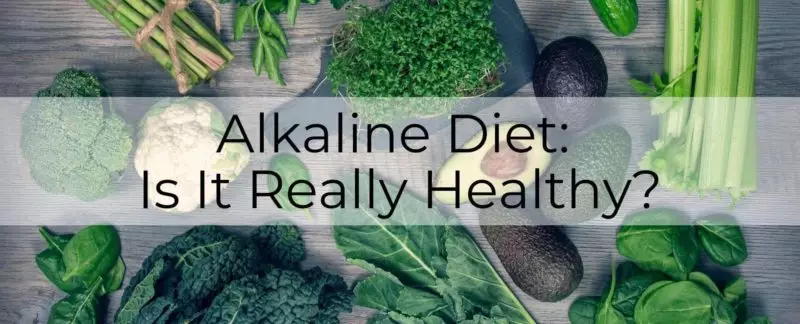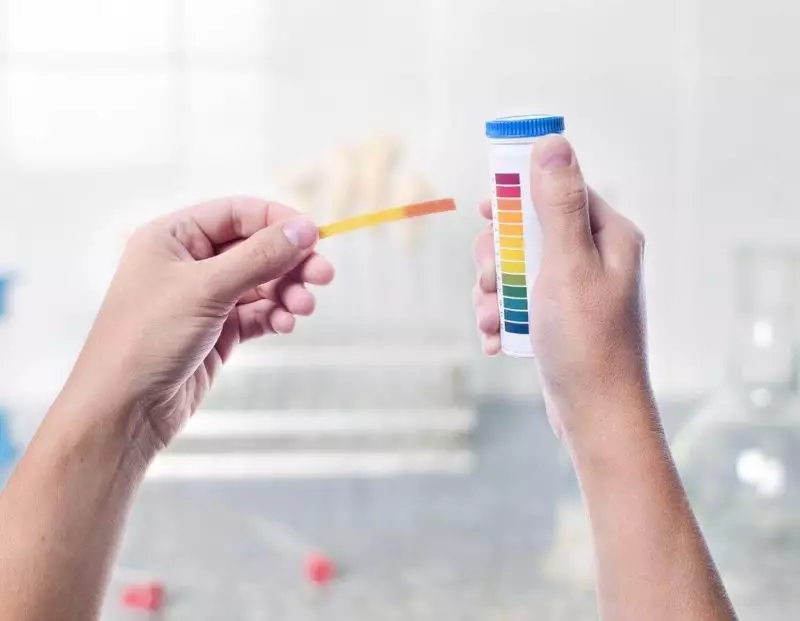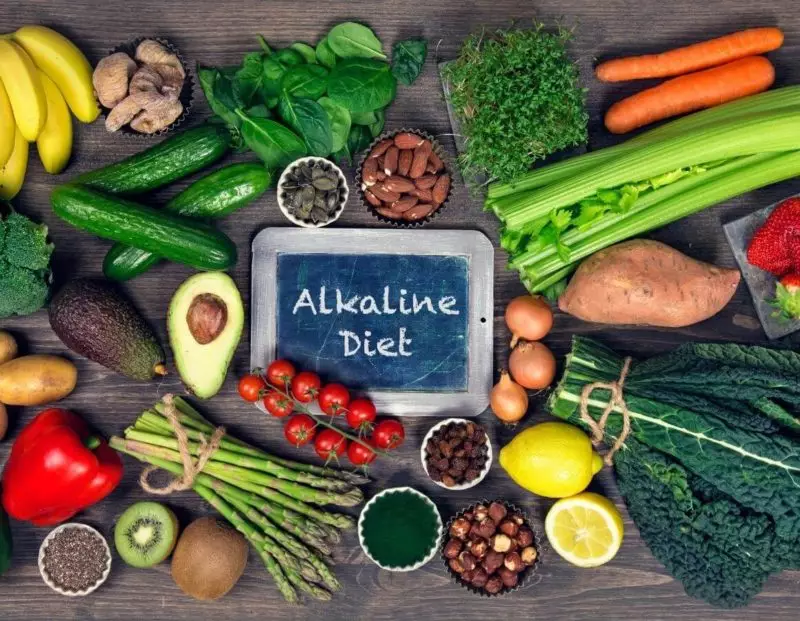
I am generally in favor of the alkaline diet, but not so much because I believe it’s a magical pH solution; rather, generally speaking, the alkaline diet tends to include more whole, plant foods such as fruits and vegetables, which means more fiber, more micronutrients, more phytochemicals, a stronger and healthier microbiome, a healthier bodyweight, less disease and many other health benefits.[1]
An acidic diet tends to include more animal foods and is associated with a significantly higher risk of developing type 2 diabetes. [2]
What is the pH?
The pH of the body is the balance between acidic and alkaline/basic substances. The term “pH” stands for the potential of hydrogen. It is a measure of the balance of hydrogen ions. Hydrogen ions have a negative charge, so more hydrogen ions will yield a lower pH. The pH scale goes from 1-14 with a pH of 7 being neutral.
The pH of the first morning urine (the first time you urinate after 5am) should be ideally between 6.4-7.0. In this range, you are best able to absorb minerals and function optimally.

How does pH work?
The pH of the blood has a very narrow range (7.35-7.45) that must be maintained for life to persist. If your pH shifts higher (alkalemia) or lower (acidemia) than this range, it can quickly become fatal. Consequently, your body has several buffer systems to help maintain that narrow range at all times and to keep the pH from rising or falling too quickly.
A buffer is made from weak acids and weak bases, which can donate/give up or take on/absorb hydrogen ions as is needed in the body.
The buffer systems include:
Okay, now that that’s over…

Can you change blood pH with diet?
There are a couple of complicating factors when exploring the concept of a health-promoting diet and pH. Although an alkaline diet tends to overall be a healthier diet in general, the ability of the body to maintain a healthy pH depends on other factors as well, such as the condition of the kidneys (which tend to become less efficient with age— although it doesn’t have to be this way!).[5] Various immune stressors such as viral infections can also impact the pH. [6]
In a culture that takes most of its health cues from social media and marketing companies rather than science and research, there is an obsession about alkalinity.
Blood vs urine pH
It’s also significant to note the blood pH cannot be compared to the urine pH. For people wanting to monitor at home, the urine pH is of course less expensive and easier to track with pH test paper. However, one must keep in mind that the urine pH changes throughout the day.

Is the alkaline diet worth it?
To say that an alkaline diet is sufficient to promote ideal pH is an oversimplification at best. As much as I hate to make an argument for an animal-based, low-quality diet, if diet alone were the main factor in maintaining pH, then most Americans would die as toddlers.
Again, because of the buffer systems in the body and the drive of the body to maintain homeostasis, the diet plays an important role but isn’t the main factor in the pH.
Whole plant foods, like animal-based foods, have many acidic components… The differentiator with plant foods is that they also contain more alkaline properties in addition to the acidic ones. [8] An alkaline diet tends to be more rich in whole plant foods so it is a more health-promoting diet and thus is still the best way to go for ideal health.
Are you confused about the best way to eat? We’d love to help. Personalized nutrition is a powerful tool that we use to help each individual person we see. Feel free to call the clinic to schedule: 269-204-6525
Nothing said or implied in this post is intended to treat, cure, diagnose or prevent any disease. It does not take the place of a health care practitioner. It is for educational purposes only.








